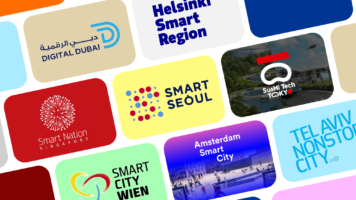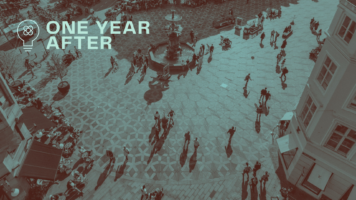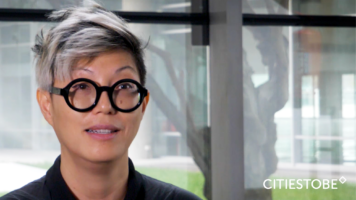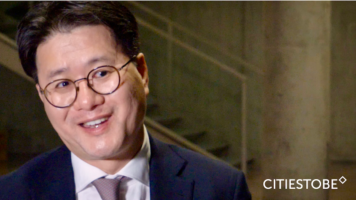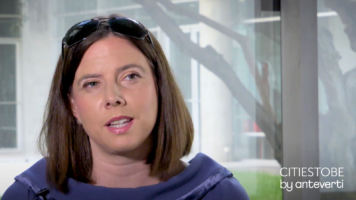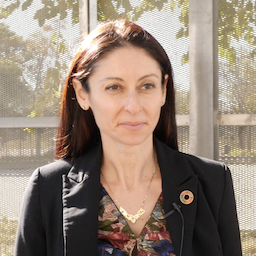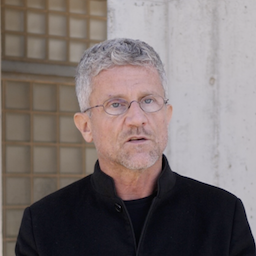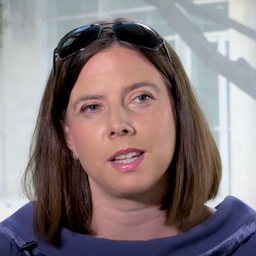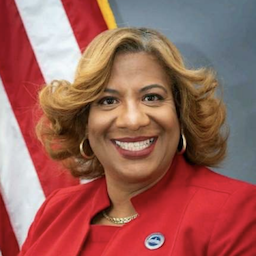Cities moving into the Metaverse: an augmented, but better reality?
By | 2023
“The Metaverse” is the buzzword we have been hearing for the last couple of years. But what does it really mean? While definitions are still evolving, the Metaverse is considered the next evolution of the Internet with a focus on the integration of physical and digital experiences. For some people the metaverse is an online space meant to digitally recreate the real world, for others it goes beyond that, being a shift in how we interact with our world.
The use of new technologies such as 3D computing, augmented reality, virtual reality and blockchain or new immersive virtual world experiences among others, gives us the possibility to overlay digital information on our physical world, going beyond the classic concept of virtual reality. This will allow the Metaverse to offer experiences and services that are even more real than what we can get through a simple screen, creating virtual worlds that mimic our physical life accurately. That is, doubtlessly, the secret of its success.

Image by LanaStock.
A potential to improve our societies?
Although the Metaverse is seen as full of new opportunities, it also entails ethical, social and cultural issues that will be necessarily faced in the coming years.
Firstly, the Metaverse does not guarantee equal access for all. As it happens with all technological advancements, and unless we do something about it, the Metaverse will leave the non-tech-savvy or the pre-laptop generations behind, perpetuating the digital gap, and contributing to the current social-economic challenges and biases associated with the use of technology in cities.
The Metaverse also poses a variety of risks and ethical concerns typically related to AI, such as the lack of privacy, accessibility, freedom of expression, legal and regulation concerns, fake news, bullying, harassment, exposure to inappropriate content, addiction or impacts on mental health, among many others threats.
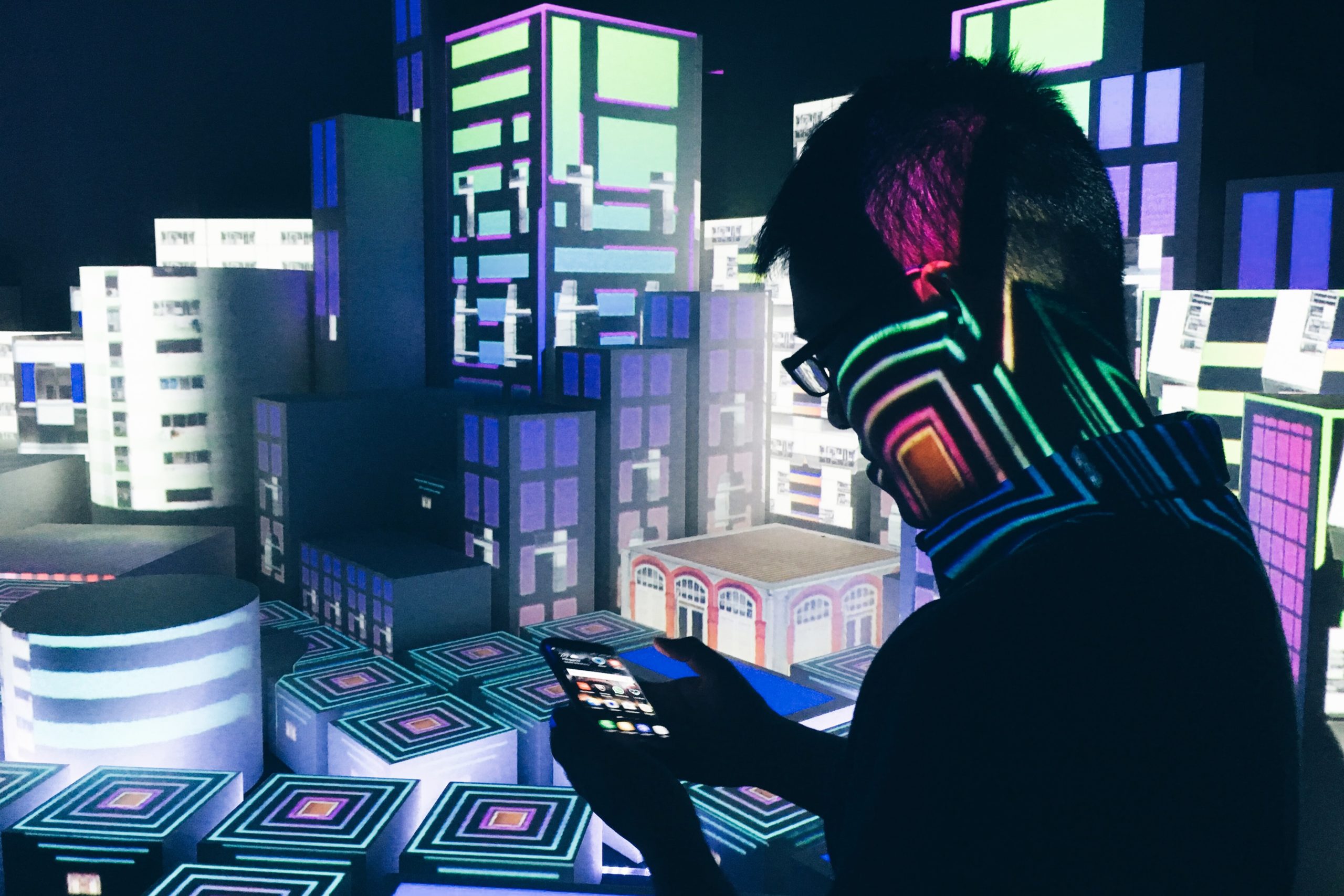
Image by Kelvin Han on Unsplash.
All the ethical, social and cultural issues the Metaverse entails lead us to the realization that there may be one more dimension to the discussion that has not really been addressed yet. One that tackles more of a philosophical and psychoanalytic perspective: why are we, as a society, creating a clone of our reality if it is not to make it better?
One could argue that the Metaverse is offering us the opportunity to fix all the mistakes we as humans have made, and to avoid all the bad we have caused to the world we are living in. It is an opportunity to start over again, to create a new society we have not been able to create in real life: equal, inclusive, healthy, sustainable… However, many of the ethical and legal issues that are being raised around the Metaverse by now are already telling us that we are probably starting to approach the use of this tool in the wrong way: Can you kill on Metaverse? Can you commit suicide? Can you exercise violence or vandalism…?
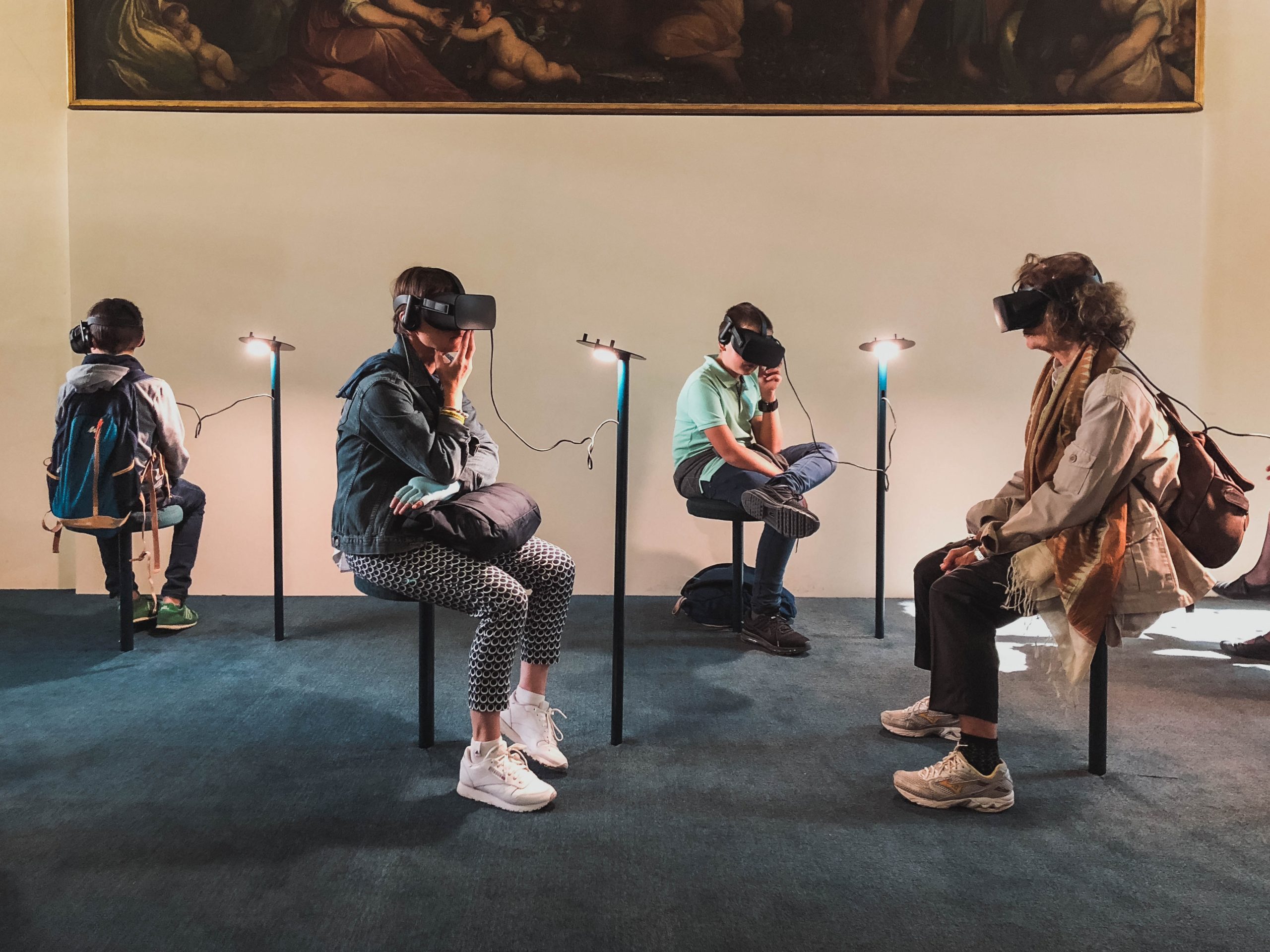
Sadly, instead of using the opportunity to create a better society, it seems we are just creating a digital replica of our physical world, and repeating our current mistakes. As a society, we do have a responsibility regarding the collective use of this new tool, so in the coming years we should think deeply about what we want the Metaverse to become, before it is too late.
Cities leading the way
Fortunately, there are some cities and organizations that are already starting to use the Metaverse with good and beneficial purposes. Apart from being used as entertainment, we are starting to see examples of how the Metaverse can also be a useful tool for cities and organizations to improve their services.
As people are spending more and more time living virtually, municipal authorities around the world are also beginning to see the potential of the virtual world, and they are starting to engage with these emerging technologies and investing in its future use. Beyond video games, social networks, or pure entertainment, we can now find applications dedicated to urban planning, mobility projects, sustainability, economics, or health, among many other fields.
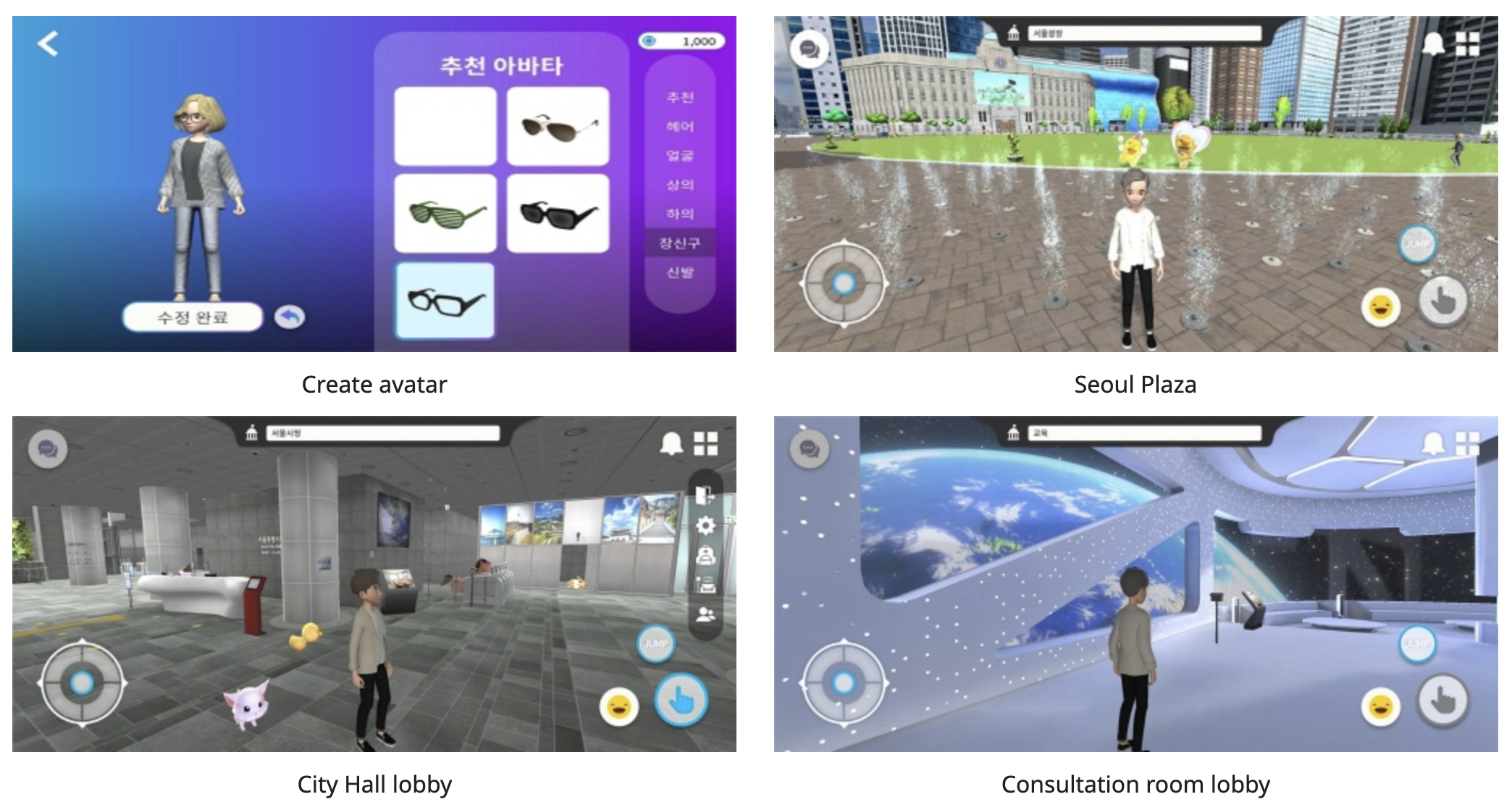
Images by Seoul Metropolitan Government
South Korea is one of the countries that has advanced the most in this new technology. In 2021, the Seoul Metropolitan Government announced its plan to become the first city to fully enter the Metaverse. Through the platform «Metaverse Seoul», residents will be able to put on a virtual-reality headset and see a 3D rendering of the City Hall and the plaza in front of it, where they will be able to interact with virtual versions of all areas of Seoul’s city administration, making it easier to do bureaucratic processes and other procedures with the municipal administration while providing a more “human” experience than a normal webpage can provide, expanding the access to public services in the city regardless of geography.
With regard to digital commerce, the city of Seoul has also announced intentions to use the Metaverse as a virtual office for companies and businesses in the city, providing support facilities and services on its metaverse platform, including the Virtual Mayor’s Office, Seoul FinTech Lab, Invest Seoul and Seoul Campus Town.

Image by Naratrip Boonroung.
A similar experience, but in this case more focused on the promotion of a virtual economy to help boost small companies and local businesses, is already underway in Santa Monica (United States of America). In partnership with FlickPlay, Downtown Santa Monica District will use a replica of the city’s shopping area for virtual commerce in its Metaverse, where people will be able to collect tokens to unblock digital experiences or exchange them for discounts in the real world.
Meanwhile, we also find some cities using the Metaverse to engage and interact with their citizens, involving them in public engagement processes. Also in the United States, New Rochelle, in New York State, is using the new tool for the pre-development of public engagement processes, through the creation of a platform called NRVR, where residents can see in a more life-like way what proposed changes in the built environment will really feel like. In the same way that New Rochelle is using the Metaverse to inform citizens of future changes in the city, in Wellington , New Zealand, city leaders are developing a digital twin to engage with residents and help them realize how their daily-life choices or actions can have an impact climate change, projecting different scenarios for the future city.
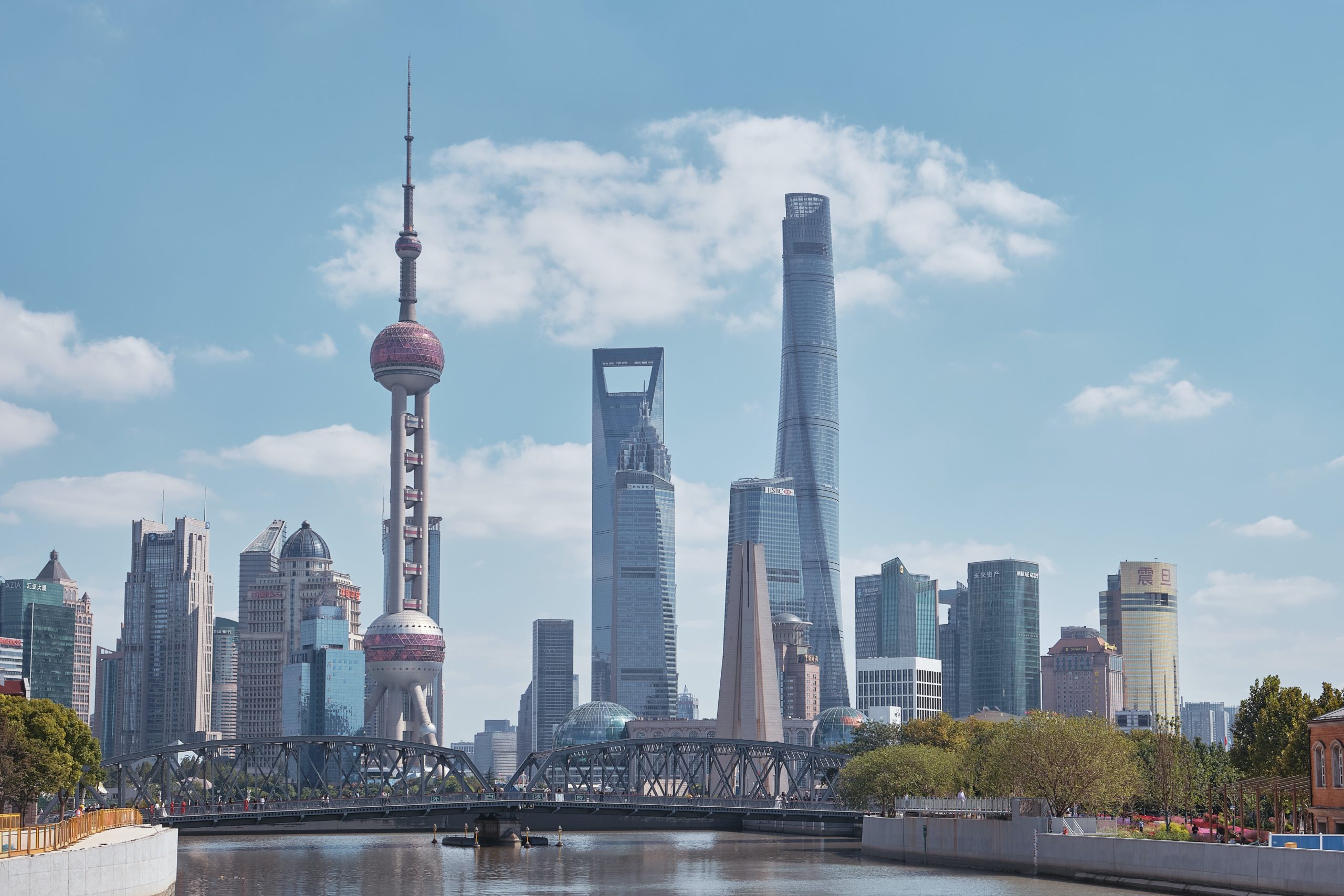
Foto de Riku Lu en Unsplash.
Regarding the uses of the Metaverse to improve resilience and risk response, Shanghai has already inserted its digital twin into a Metaverse-based supercomputer in which it performs simulations of earthquakes, police chases or fire forecasts. At their side, Brisbane (Australia) and Singapore are also exploring how digital twins can help them move towards a more sustainable, resilient urban planning.
Finally, in the Middle East, Dubai is already developing the Dubai Metaverse as more of a global strategy that aims at fostering innovation, attracting new companies, supporting Metaverse education, and applying Web3 technologies to create new governmental work models.
Some of the cities mentioned above provide early indications of where city use of the Metaverse is heading as well as its potential and benefits. As seen, the most logical connection between the Metaverse and cities is the potential use of technology to influence quality-of-life dimensions (including urban planning, transport, energy production, health, education, entertainment, and others).

Image by Brisbane City Council under CC BY 2.0 license.
For local governments, the Metaverse can provide great opportunities to improve interactions with residents, offer fast, efficient, and real-time public services online in a more “human” way, and better manage assets such as urban spaces. It also makes bureaucracy and participation more accessible to people who have mobility limitations, time constraints or fixed work hours. It can help city staff model scenarios with a digital twin, allowing cities to prototype changes and determine their impacts before implementing them in the physical world, while also engaging residents by making it easier for them to have a grasp on reality. Finally, the way in which some cities are using the Metaverse also indicates that it can also help boost activity with businesses or downtown areas, bringing new economic opportunities.
Cities and the Metaverse: a conclusion
In conclusion, the Metaverse has been discussed since the beginning as it brings a lot of ethical and social issues. However, this one can also be used to create a positive impact, as we have seen with the previous examples of the municipalities around the world who are starting to use it with good purposes. Let’s follow their example and let the Metaverse become a virtual, augmented, but better reality for all. 🔹
Header image by Jonathan Roger on Unsplash.
About the authors
Cristina Garrido is the CEO of Anteverti, director of CitiesToBe – Anteverti's knowledge platform, and curator of the international spin-offs of the Smart City Expo World Congress, with more than 18 years of global experience advising cities, companies, and other institutions in creating their strategic vision and developing it through innovation, creativity, management, and communication.
Cristina is a regular speaker and keynote at international conferences organized by the UN, OECD, European Commission, Urban Land Institute, and the Seoul Leaders Forum. She writes for numerous publications and has been an associate professor at the Universitat Oberta de Catalunya. She holds a Master's in Urban Sociology from Goldsmiths, University of London, completed the Ignite program in Business Innovation at the Stanford Graduate School of Business, and a BA in Visual Arts.
With a background in arts and urban studies, Cristina's expertise focuses on how innovation can be a tool for improvement, sustainability and strategic development of cities. She has written for several publications and, up until 2017, was an Associate Lecturer at the Universitat Oberta de Catalunya (UOC).
Anna González is an expert in mobility, urban innovation, and citizen participation with over 8 years of experience leading studies and consulting projects. She is an economist with a master's degree in Territorial Planning and Environmental Management, and she has training in gender equality, project management, and urban cycling planning.
Since 2020, Anna has been advising local and international institutions and managing events at Anteverti, where she has contributed to the development of the Digital Future Society initiative and the Smart City Expo World Congress in Barcelona, as well as coordinating the program of its several international spin-offs in Qatar and Argentina. Previously, she worked at the URBANing consultancy.



